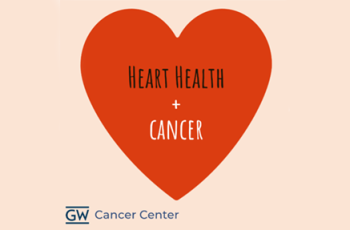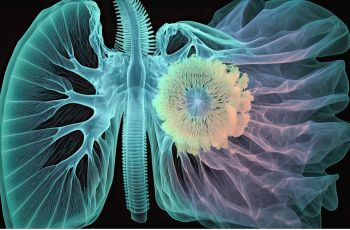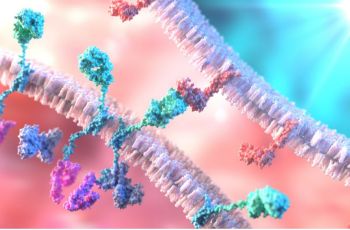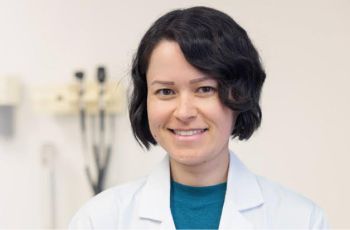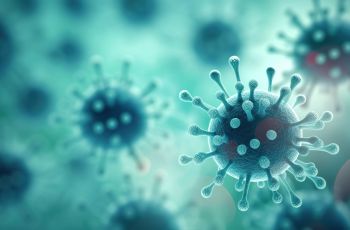News Archive
Nominations are open for the 2024 GW Cancer Center Awards, recognizing faculty and trainee excellence in research, community impact, mentorship, and early career contributions.
They’re everywhere you look, those Valentines. Today, when we celebrate all things love, it makes sense to take a look at the muscular organ beating deep within our chests and learn how nutrition goes hand in hand with heart health and cancer.
Caring for others is deeply rooted in Victoria Atchison’s DNA. When she was a young girl, she wanted to be a veterinarian. As a high school student, she shadowed a physician assistant (PA) in her primary care provider’s practice, and her career trajectory shifted. Now, as a PA at George…
Lung cancer is the leading cause of cancer death in the United States according to the American Cancer Society, accounting for about one in five cancer deaths. Each year, more people die of lung cancer than from colon, breast, and prostate cancers combined.
Amarendra Neppalli, MD, Director of the GW Cancer Center Stem Cell Transplantation and Cellular Therapy, explained that CAR T therapy is the most innovative technology in fighting the liquid tumors of leukemia, lymphoma, and multiple myeloma. Soon, CAR T therapy will be an option for blood…
Currently, lung cancer screening exams are recommended for high-risk adults. These patients have at
least a 20 pack year cigarette smoking history. A pack year is calculated by the number of packs a person
smokes per day multiplied by the number of years that person has smoked.
Sora Ely, MD, has joined the George Washington (GW) University Cancer Center and the GW Medical Faculty Associates as a Thoracic Surgeon.
Now that the leaves are changing color and the sun is tucking in behind the horizon earlier each evening,
viruses and colds are making their seasonal rounds. It’s a tough season for everyone, but it’s especially
problematic for cancer patients whose immune systems are already…
For many, it’s a season of joy. But for those dealing with a cancer diagnosis, whether it’s for the first time or an ongoing issue, the festive season may not be at the top of their lists.
What are the best ways patients and caregivers can cope with the dual stresses of the holidays and…
Jennifer Vaz, MD, joined the George Washington University (GW) Cancer
Center and the GW Medical Faculty Associates as a Gynecological Oncologist.


